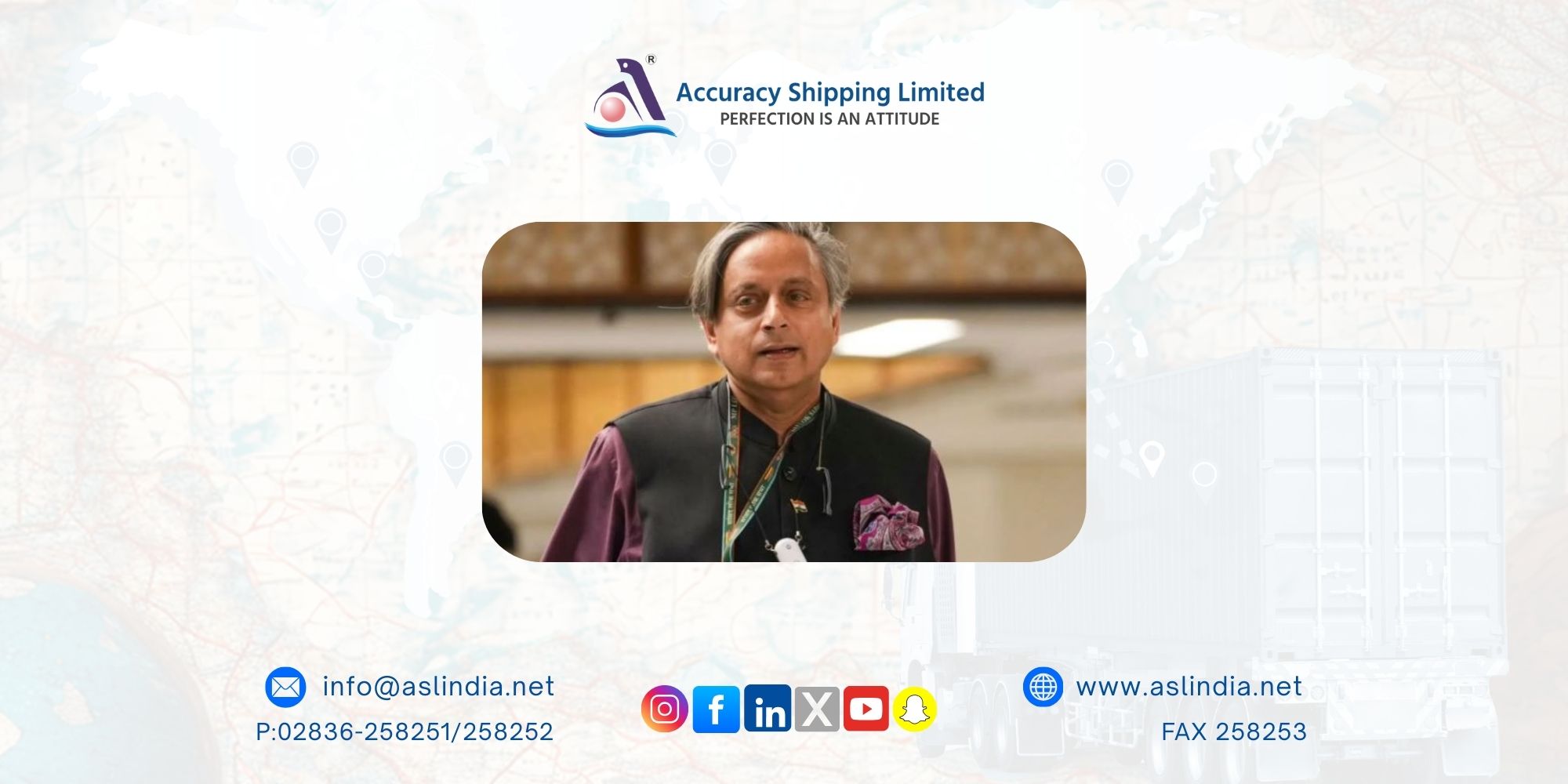Shashi Tharoor slams Trump’s tariff move, calls it “Sanction Against India”

Senior Congress leader Shashi Tharoor has strongly criticised US President Donald Trump’s recent decision to impose a 50 per cent tariff on Indian goods in response to New Delhi’s purchase of Russian oil. Speaking at a real estate conference in Singapore, Tharoor described the move as both “mercurial” and “unprecedented,” warning that it is already having devastating consequences for India’s export-driven economy.
Job Losses and Economic Fallout
According to Tharoor, the tariffs have already triggered widespread job losses, particularly in industries reliant on exports to the United States. He highlighted that over one lakh jobs have been lost in Surat’s gems and jewellery sector alone, while India’s seafood and manufacturing industries are also facing severe disruptions.
“Mr Trump is a very mercurial individual, and the American system gives the President an amazing amount of leeway,” Tharoor observed, pointing out the sweeping economic consequences of the unilateral tariff decision.
Sanctions Disguised as Tariffs
What makes the new tariffs particularly contentious, Tharoor argued, is the additional 25 per cent penalty linked to India’s Russian oil imports. He dismissed this as more than just a trade measure, calling it a direct sanction on India.
“The imposition of an additional 25 per cent is not tariff. It is actually sanctions, and it is a sanction against us for buying oil from Russia. But that’s totally unfair, because China is importing more oil and gas from Russia,” Tharoor said. He urged the United States to adopt a uniform global policy instead of selectively penalising India.
Call for Strategic Rethink
While acknowledging the difficulties Indian exporters now face in accessing the US market, Tharoor expressed cautious optimism about ongoing negotiations. “We are finding it very difficult to get into the American market. And I am pleased to say that we are actually negotiating knowing very well that we need some access to America,” he noted.
However, he emphasised that India cannot afford to depend solely on the US. Stressing the importance of diversifying both export markets and political partnerships, Tharoor said:
“We also have to diversify our lines of political communication to other countries…we can’t just afford to sit there and say we have no other option.”
India’s Broader Global Engagement
Tharoor linked the tariff dispute to India’s wider diplomatic efforts. He pointed to Prime Minister Narendra Modi’s recent participation in the Shanghai Cooperation Organisation (SCO) summit in China and Russian President Vladimir Putin’s upcoming visit to India as signs of India’s intent to strengthen regional ties.
“We are essentially showing a serious intent at least to move away from confrontation conversation with China. Even though we’ve had some very, very tough times in that relationship, I think we will find ourselves trying to open up very much more for China than we have done in the last 5–6 years,” Tharoor said.
A Swipe at Trump’s Political Style
In his closing remarks, Tharoor took a sharp dig at Trump’s unconventional leadership style. Referring to Trump’s public claim that he deserved a Nobel Peace Prize, Tharoor quipped:
“Have you ever heard any world leader openly saying that he deserves a Nobel Peace Prize? It never happened before.”
Conclusion
Tharoor’s strong words highlight the gravity of the situation as India grapples with both economic and diplomatic challenges arising from the US tariffs. His call for diversification in trade and diplomacy underscores the urgent need for India to recalibrate its international strategy in an increasingly unpredictable global environment.







